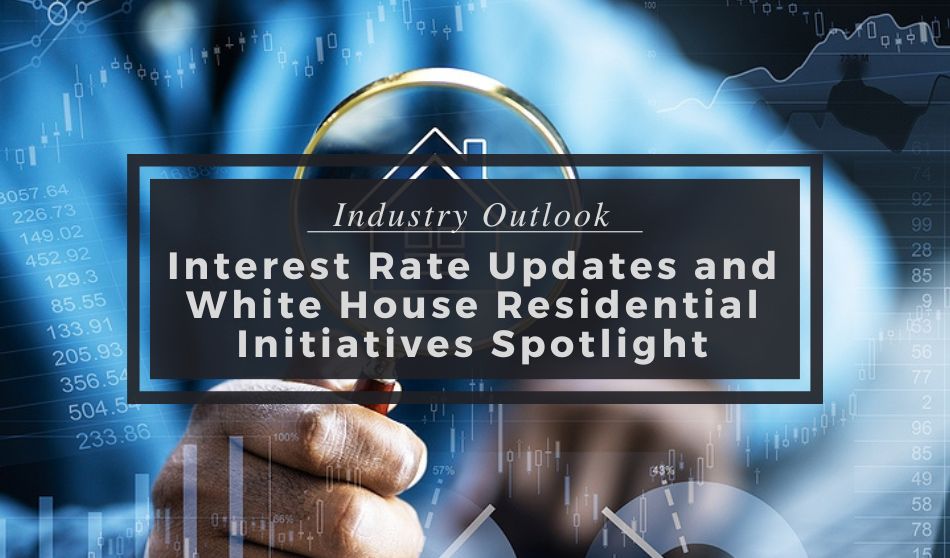
This industry outlook explores US housing news and updates: Following their meeting at the beginning of November, the Federal Reserve announced it is holding interest rates steady. The White House announces new actions to support converting commercial buildings to residential use.
New announcements from the Federal Reserve and the White House will directly influence the real estate market and investment opportunities for within the industry. This month, investors and industry professionals should keep abreast of new information regarding office conversions and the Fed rate announcement.
High-interest rates seem to be here to stay.
The Federal Reserve announced that it is holding interest rates steady following its October. 31st – November 1st meeting. This keeps interest rates at a 22-year high; shutting many would-be first-time homeowners out of the market and causing homeowners to reevaluate moving. According to Redfin, the last time home sales were this low was during the Great Recession.
This announcement comes following an October 2023 letter to the Federal Reserve. The National Association of REALTORS® (NAR) joined the National Association of Home Builders (NAHB), and the Mortgage Bankers Association (MBA) joined forces to lobby the Federal Reserve to halt interest rate increases.
The three major housing-industry groups called on Federal Reserve by issuing a letter to Fed Chairman Jerome Powell, expressing concern.
The letter notes their intent to “Convey profound concern shared among our collective memberships that ongoing market uncertainty about the Fed’s rate path is contributing to recent interest rate hikes and volatility. This has exacerbated housing affordability and created additional disruptions for a real estate market that is already straining to adjust to a dramatic pullback in both mortgage origination and home sale volume. These market challenges occur amidst a historic shortage of attainable housing.”
It also ends by requesting that the Board of Governors of the Federal Reserve System make clear statements the Fed “does not contemplate further rate hikes” and does not actively sell its holdings of mortgage securities, at least until the housing market has stabilized.
Learn more: 6 Ways Rising Interest Rates Impact Rental Properties
White House announces office-to-residential conversion initiatives.
The Biden-Harris Administration announced several new actions to support the conversion of high-vacancy commercial buildings to residential use with the goal of creating energy-efficient affordable housing that is near transit and jobs.
Some points of interest include:
- The Department of Transportation (DOT) is releasing new guidance on how the Transportation Infrastructure Finance and Innovation Act (TIFIA) and Railroad Rehabilitation & Improvement Financing (RRIF) programs can be used to finance housing development near transportation. This includes conversion projects, and the programs have over $35 billion in available lending capacity.
- HUD is releasing an updated notice on how the Community Development Block Grant fund can be used to boost housing supply. The Community Development Block Grant fund, $10 billion of which has been allocated during this Administration, can include the “acquisition, rehabilitation, and conversion of commercial properties to residential uses and mixed-use development.”
- The White House is releasing a Commercial to Residential Federal Resources Guidebook with over 20 federal programs across six federal agencies that can be used to support conversions. They will also be announcing training workshops this fall for local and state governments, real estate developers, owners, builders, and lenders on how to use federal programs for commercial to residential conversions, as well as covering information on meeting the goals of affordability and building zero emissions housing.
- Through the Better Buildings Initiative, DOE also launched a commercial to zero emissions housing toolkit that includes technical and financial guidance on how to achieve zero emissions commercial to residential conversions.
- The Treasury has described the tax incentives for builders of multifamily housing that are available through the Inflation Reduction Act. Several tax incentives may support eligible builders of multifamily housing to lower the investment costs associated with energy efficiency upgrades, clean electricity generation projects, or even new or substantial reconstruction and rehabilitation of homes.